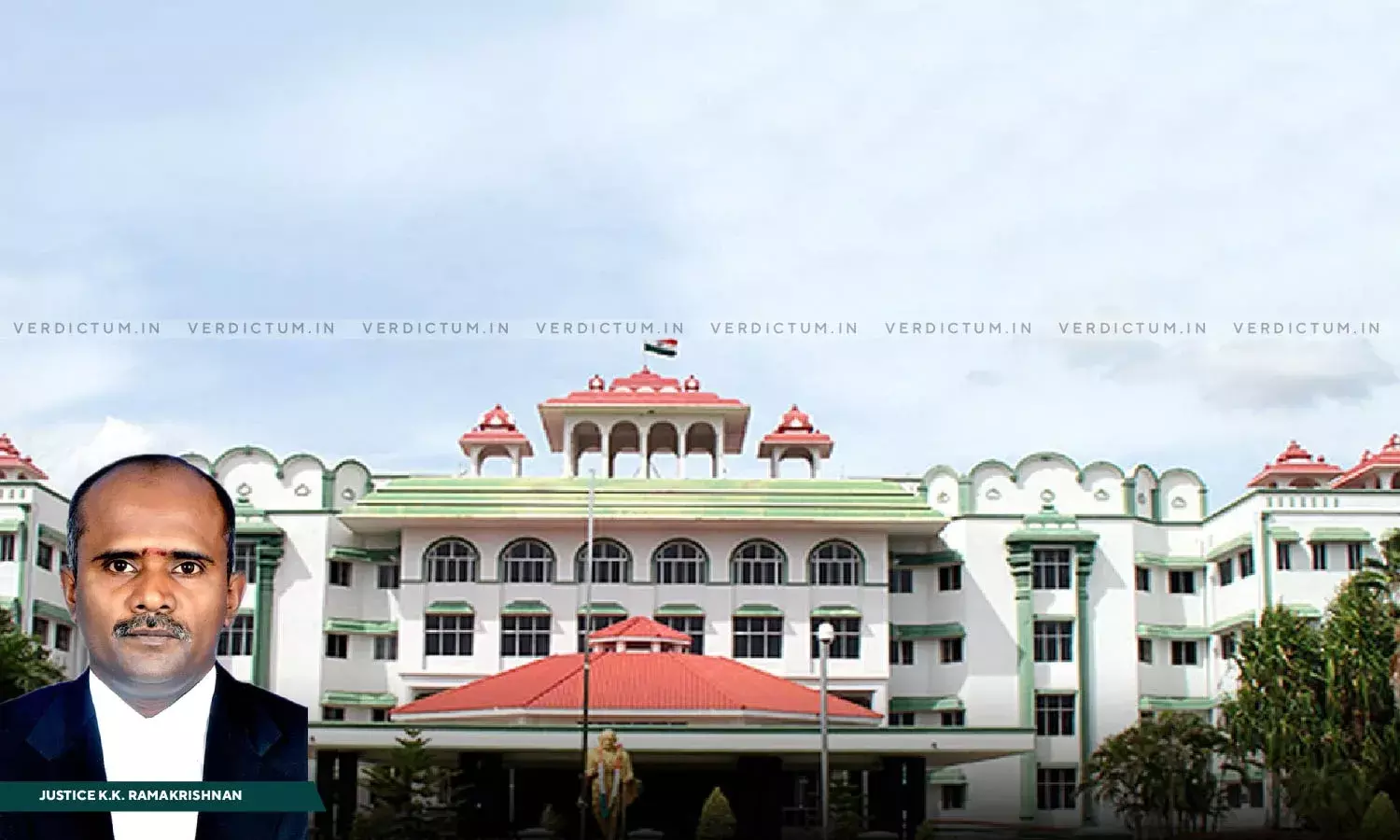Church Has Become Voiceless Because Of Its Administrators: Madras HC Directs CBI To Investigate Fraudulent Sale Of Land By CSI Madurai-Ramnad Diocese
The Madras High Court directed the CBI to investigate the alleged fraudulent sale of government-assigned land by the CSI Madurai Ramnad Diocese after observing that the church has become voiceless since its administrators muzzled the voice of the persons who questioned their illegal activities.
The Court allowed the Writ Petition filed by the President of the Christian Minorities Unit (Petitioner) seeking action against the illegal alienation of land by the Church of South India, Madurai-Ramnad Diocese (Respondent) originally assigned for industrial and charitable purposes. The Bench noted that the property in question, assigned by the government in 1912 for the benefit of needy women, had been sold fraudulently by the Respondent in violation of the assignment conditions.
A Single Bench of Justice K.K. Ramakrishnan held, “The church has become voiceless since its administrators muzzled the voice of the persons who questioned their illegal activities of alienating huge property of the church. Therefore, the petitioner as a member of the church made a complaint to various police officers of the State police and all were not concerned about the grievance of the petitioner for some reason, and he sent a complaint to the CBI. This is an extra ordinary circumstance.”
Advocate M.R. Thangaia appeared for the Petitioner, while Senior Advocate M. Ajmal Khan represented the Respondents.
The Petitioner alleged that the said land was assigned by a Government to the American Board of Commissioners for Foreign Missions (ABCFM). The assignment provided that the land be used exclusively for industrial and charitable purposes to establish an industrial home for orphans and destitute women.
The Petitioner contended that the Church of South India Trust Association (CSITA), to which the ABCFM’s properties were later transferred, had conspired with administrators of the Respondent to illegally sell the land to private individuals for a grossly undervalued amount.
The Petitioner further alleged that the properties were sold in active connivance with government officials, with sale deeds reflecting a value of just Rs. 1.21 crore, while the actual worth of the property exceeded Rs. 22 crore.
The High Court directed the Central Bureau of Investigation (CBI) to register a case and conduct an investigation into allegations of fraudulent transactions after noting that the right to fair investigation is a victim's fundamental right guaranteed under Part III of the Constitution of India.
“In this case, there was fraudulent transactions of astronomical level and further, there was the illegal transfer of the money. The administration of the CSI/fourth respondent was questioned by the petitioner, who is the none other than the member of the said society. But no proper rely was given. In this case, the property was dedicated for development of poor women. Even in the assignment condition, it is stated that the amount is to be utilized for the development of the needy women,” the Court noted.
Consequently, the Court held, “The said allegation is supported by material documents and this Court is prima facie satisfied to order investigation by the CBI. Therefore in view of the above factual circumstances, this case comes under the extraordinary exceptional circumstances to invoke the jurisdiction under section 226 of the constitution of India to issue direction to the CBI to register the case against the persons connected with the fraudulent transaction and conduct the investigation in a proper manner.”
Accordingly, the High Court allowed the Writ Petition.
Cause Title: D. Devasahayam v. Central Bureau of Investigation & Ors.
Appearance:
Petitioner: Advocate M.R. Thangaia
Respondents: Senior Advocate M. Ajmal Khan; Special Public Prosecutor M. Karunanithi; Additional Advocate General R. Baskaran; Government Advocate M. Muthumanikkam












